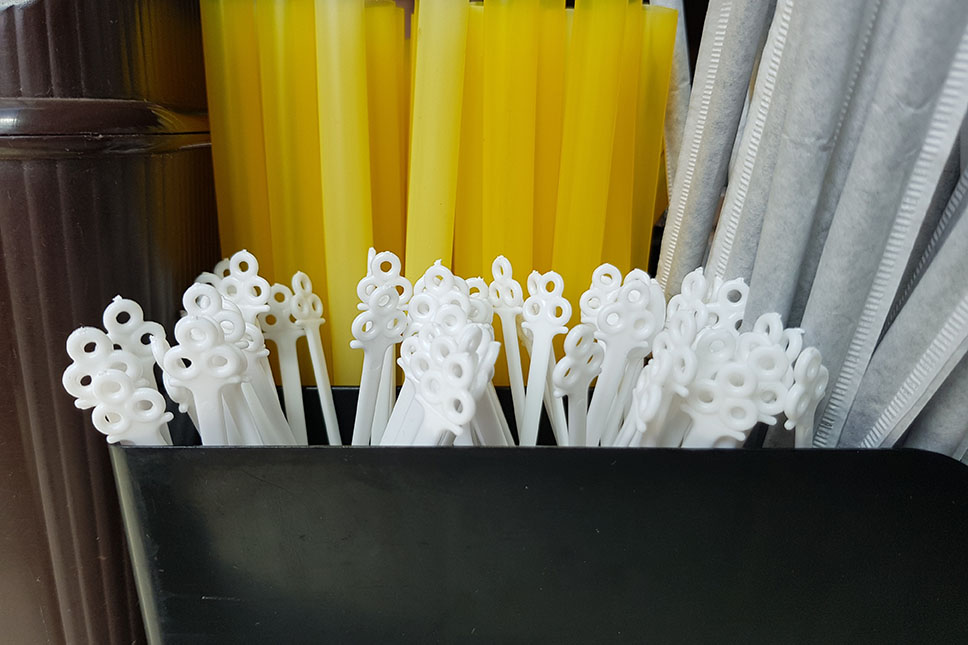
Canada will no longer allow the manufacture of stir sticks as of December 2022, part of a wider plastics prohibition. | Wan Fahmy Redzuan/Shutterstock
Canada has banned a wide range of single-use plastics, effective by the end of the year for most items, and is looking to implement new labeling laws as well.
According to a government press release, checkout bags, cutlery, foodservice ware with “problematic plastics that are hard to recycle,” ring carriers, stir sticks and straws will be banned from being manufactured or imported in December 2022, with some exceptions.
To provide businesses enough time to transition, the sale of the items will be prohibited as of December 2023. Going a step further, Canada will also prohibit the export of those plastic items by the end of 2025, making Canada the first among peer jurisdictions to do so internationally.
The government estimates the ban will eliminate over 1.3 million tons of hard-to-recycle plastic and more than 22,000 tons of plastic pollution over the next decade. In Canada, up to 15 billion plastic checkout bags are used every year and approximately 16 million straws are used daily, the press release said.
“No one wants to see plastic litter in their local park or hiking trail, or on the shoreline where their kids play,” the press release said. “That’s why the Government of Canada has moved forward a comprehensive plan to ban harmful single-use plastics and keep them out of the environment.”
Steven Guilbeault, Minister of Environment and Climate Change, said after the ban is fully in effect “businesses will begin offering the sustainable solutions Canadians want, whether that’s paper straws or reusable bags.”
“With these new regulations, we’re taking a historic step forward in reducing plastic pollution, and keeping our communities and the places we love clean,” Guilbeault said in the press release.
Nicholas Mallos, senior director of Ocean Conservancy’s Trash Free Seas Program, said in a statement that it’s “critical that governments join the fight against plastic pollution” and called Canada’s decision “a decisive win for our ocean and the environment.”
“What makes this so important is that they are targeting several of the items most commonly found on beaches and in waterways,” Mallos added.
The ban’s timeline is flexible and it contains some exceptions. For example, people who need single-use plastic flexible straws for medical or accessibility reasons will still be able to purchase and use them at home, in social settings and in healthcare settings.
The prohibition on the manufacture and import of ring carriers and flexible straws packaged with beverage containers such as juice boxes will come into force later, in June 2023, and the prohibition on the sale of them will take effect in June 2024.
“These transition timelines recognize the complexity associated with retooling manufacturing lines for these products,” the press release said.
Looking forward, Canada plans to start considering approaches to a federal public plastic registry and the creation of labeling rules to prevent the use of the chasing arrows symbol on plastic items unless at least 80% of recycling facilities in Canada accept them and they have reliable end markets. That work will begin in early summer, the press release said.
More stories about legislation
- California lawmakers look to quantify PCR imports
- NY legislative session ends, again without EPR
- Both coasts see DRS program changes



